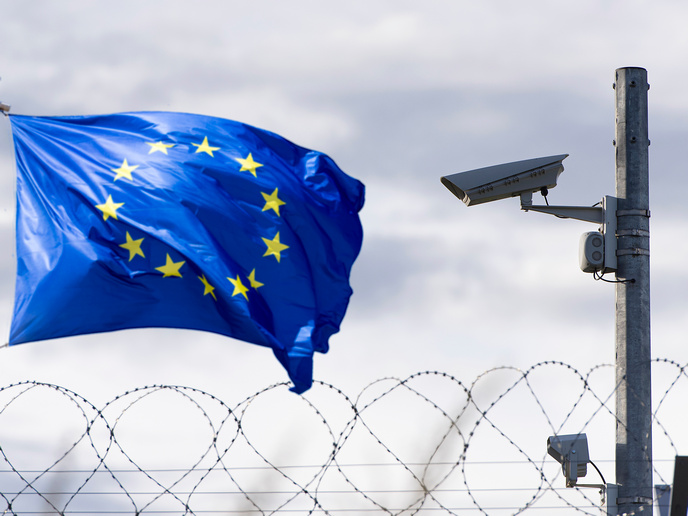New tools for detecting – and preventing – online radicalisation
For the vast majority of us, the internet is an infinite resource of information or, at the very least, a great place for entertaining cat videos. But for criminals and terrorists, it is the perfect tool for fundraising, recruiting, coordinating and communicating. “Cyberspace is being increasingly used as a medium to illegally fund, recruit, train and incite individuals to fight Europe’s social and democratic ideals,” says Holger Nitsch, director of the Centre of Excellence for Police and Security Research in Bavaria (CEPOLIS), an institute of the University of Applied Sciences for Public Services(opens in new window) (website in German) in Bavaria’s Department of Policing. According to Nitsch, law enforcement is too focused on the criminal act, not the cause of this action. “We need to treat the disease, not the symptom,” he adds. “As online radicalisation is the driving force behind the attitudes and beliefs that inform criminal behaviour, our efforts must start here.”
Causes and implications of online radicalisation
With the support of the EU-funded PROPHETS project(opens in new window), Nitsch is leading an effort to examine the causes and implications of online radicalisation and, based on this, develop the tools needed to address the challenge. As far as the causes are concerned, a special focus has been placed on identifying, operationalising and measuring vulnerability indicators, or what makes certain individuals susceptible to radicalisation. These include personal factors like perceived injustice and grievances, or uncertainty around identity formation or a search for what is interpreted as ‘meaning’. The desire to belong can be a trigger as can a person’s social environment and other societal factors such as social polarisation. The project also focused on terrorist financing, recruitment and training, terrorist-generated content, and terrorist-related hate speech.
Technical toolkits
Based on this research, the project developed three technical toolkits for detecting – and preventing – online radicalisation. For example, the Monitoring and Situational Awareness Tool(opens in new window) (MST) collects and analyses multimedia content from various online sources. “With state-of-the-art technologies and building upon our social science findings, the MST extracts valuable information from structured and unstructured data,” notes Nitsch. “These outcomes are then used to identify ongoing activities and to provide timely notifications to law enforcement agencies.” The Policy Making Toolkit(opens in new window) (PMT) is, as the name suggests, geared towards policy analysis by decision makers and law enforcement professionals. It can be used to recommend policy approaches towards the existing and emerging threats posed by online radicalisation. “Decision makers can use the PMT to review relevant policies and legislation, such as the EU Directive on combating terrorism(opens in new window), across Member States,” adds Nitsch. Last but not least is the Expert Notification Portal(opens in new window) (ENP). This is a community-driven space designed to facilitate communication between law enforcement agencies and experts during ongoing investigations of online radicalisation activity.
Powerful capabilities for fighting online terrorist-related activities
All three toolkits have been evaluated by law enforcement end users and consultants from numerous different European countries. All the tools have been confirmed as meeting end user expectations and needs. The MST was noted as being particularly effective at detecting terrorist-related content and identifying terrorist-related activities and vulnerability indicators. “The three tools provide law enforcement agencies, policymakers and other relevant stakeholders with powerful capabilities to fight terrorist-related online activities, not just by detecting them, but also by addressing their root cause – online radicalisation,” concludes Nitsch.







